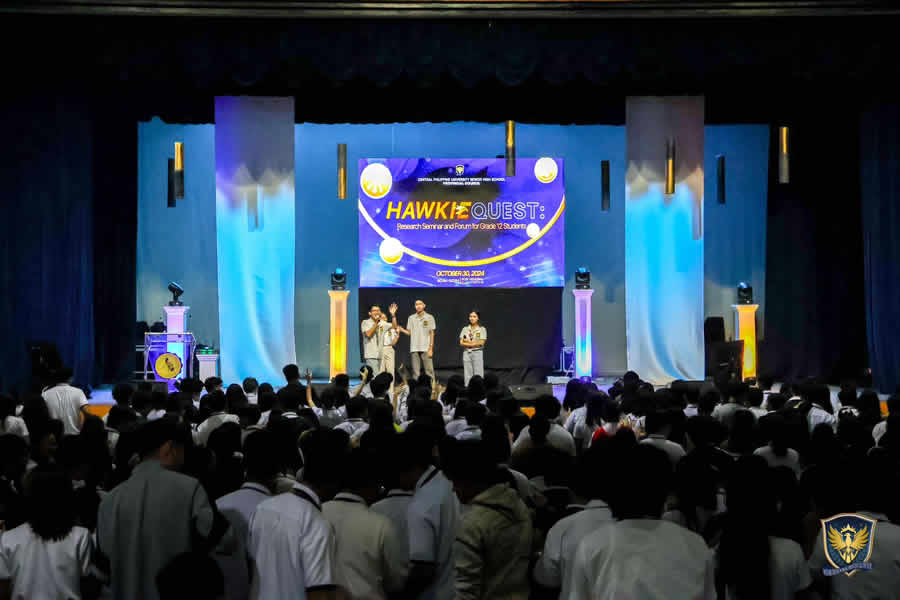By Mikee Natinga Norico
Grade 12 students of CPU are inspired to take on real-world challenges through research as they delve into the quantitative methodology at the “Hawkie Quest” seminar and forum.
Central Philippine University (CPU) held its much-anticipated “Hawkie Quest,” a research forum and seminar for Grade 12 students, on October 30, 2024, at the Rose Memorial Auditorium. Themed “Advancing Research Skills of Senior High School Learners in Quantitative Research Methodology,” the day-long event aimed to deepen students’ understanding of the quantitative research process, with engaging discussions on both non-experimental and experimental research methods.
The forum, which ran from 8:00 a.m. to 5:00 p.m., was structured to give students a comprehensive overview of quantitative research. The morning session was dedicated to non-experimental research, offering insights into methods like surveys and correlational studies that rely on observations without manipulation. The afternoon session focused on experimental research, where students explored techniques for testing hypotheses under controlled conditions.
Leading the sessions were Dr. Darril F. Pamocol, PhD and Mr. Rences G. Gardose, MA Bio, both renowned for their expertise and dedication to research. Dr. Pamocol and Mr. Gardose shared their insights, guiding students on how to craft research questions, select appropriate methodologies, and interpret data effectively. They emphasized that research is not just about synthesizing information or creating frameworks; it’s a journey of exploration, problem-solving, and envisioning future possibilities.
This required event gathered all Grade 12 students at CPU, highlighting the university’s commitment to nurturing critical thinking and inquiry skills among young scholars. By immersing themselves in Hawkie Quest, students were encouraged to see research as more than an academic requirement. As the forum illustrated, research is a vital tool for observing, questioning, and unlocking solutions to real-world challenges.
The day concluded with students eager to apply their newfound knowledge, equipped with the skills to look beyond the present and explore “what could be.” As they departed from Rose Memorial Auditorium, CPU’s future researchers carried with them the inspiration to look deeper, question further, and unlock potential solutions to pressing issues.

